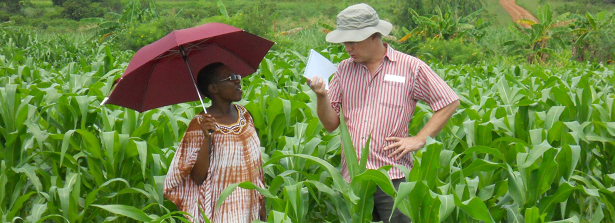F&BKP Plan of Action 2019-2022

The Ministry of Foreign Affairs has approved the four-year Plan of Action (2019 – 2022) of the Knowledge Programme for Food Security (KP), which builds on the experience of the Food & Business Knowledge Platform (F&BKP) that exists since September 2013 and the Embassy Support Programme run by WCDI for about 10 years. Also included is the Talent Pool which places trainees at Ministries and Embassies.
In practice, KP will continue to use the name, website and social media of the Food & Business Knowledge Platform (F&BKP).
The shifts in gravity compared to the past years are the following:
- More emphasis on “know-how”, knowledge use and disclosure of existing knowledge.
- More collaboration with “on the ground” work of Dutch actors in LMICs.
- Increasing the cooperation with the private sector.
- Collaboration with multilateral organizations to increase impact.
- Research IN development; more explicitly linking research to implementation of development programmes and policy interventions.
- Integration with AgriProFocus since roles and activities partly overlap.
As such, the new Knowledge Programme is the response to a changing context and inspired by five years’ experience of the F&BKP and its consortium partners.
The F&BKP will be one of the building blocks of the envisioned Netherlands Food Partnership (NFP) and will become the space for Dutch knowledge brokering in the field of Food System Transformation aiming at Food and Nutrition Security (FNS). This is relevant, since the complex and multifaceted character of FNS calls for an integrated approach, creating synergies and countering fragmentation of relevant knowledge and expertise.
The main objective of the F&BKP is to increase the impact of Dutch projects, programmes, policies, investments and business on SDG2 by knowledge brokering across professional divides. The F&BKP will facilitate the creation, exchange and use of knowledge, by the collection, connecting and combining of knowledge for Dutch actors and their partners working in LMICs on Food System Transformation.
Key activity areas in 2019-2022 are the following:
- Country and region-based learning loops; multi-stakeholder learning trajectories across countries and across programmes.
- Knowledge trajectories with thematic networks and sector organizations.
- Support to the Ministries and Embassies.
- Working with multilateral organizations.
- Making research work in practices and policies.
- Investing in the next generation.
- Internet platforms and communication.

